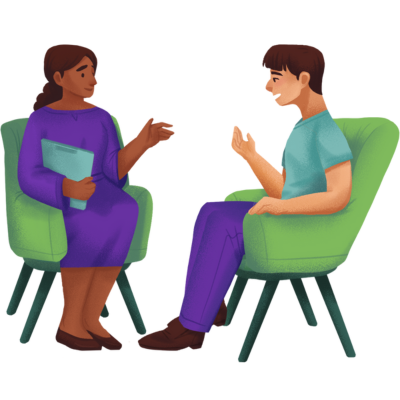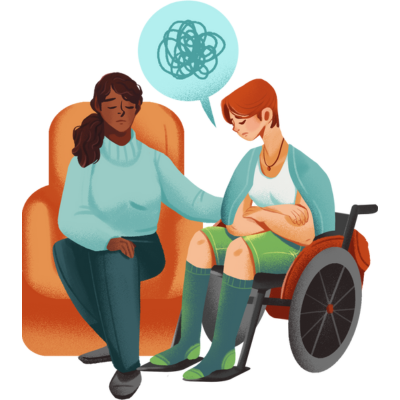Types of Therapy for Trauma

There are many forms of therapy that can be effective in treating trauma, including:
1. Cognitive Behavioral Therapy (CBT)
CBT focuses on identifying and changing negative thought patterns and behaviours that can contribute to trauma symptoms.

2. Eye Movement Desensitization and Reprocessing (EMDR)
EMDR uses eye movements to help individuals process traumatic memories and emotions. It interrupts the neurological pathways that cause the physical responses to a trigger.
3. Trauma-Focused Cognitive Behavioural Therapy (TF-CBT)
TF-CBT is a specialised form of CBT designed to help children and adolescents who have experienced trauma.
4. Narrative Therapy
Narrative therapy involves helping people to create a new narrative or story around their traumatic experience. It allows them to see themselves as survivors rather than victims.

5. Mindfulness-Based Stress Reduction (MBSR)
MBSR involves using mindfulness practices such as meditation and yoga to reduce stress and manage the symptoms of trauma.
6. Psycho-dynamic Therapy
Psycho-dynamic therapy helps people understand the unconscious thoughts and emotions that may be contributing to their trauma symptoms.
7. Somatic Therapy
Somatic therapy focuses on the connection between the mind and body, and how physical sensations and responses are connected to trauma.

8. Group Therapy
Group therapy provides a safe and supportive environment for people to share their experiences with others who have had similar experiences.
Which therapy is best for me?
Different therapies may work better for you than others. It can take some time to find the right one, and this process can seem overwhelming.
Finding a therapist who specialises in treating trauma and makes you feel comfortable is very important.
If you need help in finding one or exploring options to make therapy more affordable, contact us at Survivor Connections.
Find out more about exploitation, human trafficking and modern slavery:


